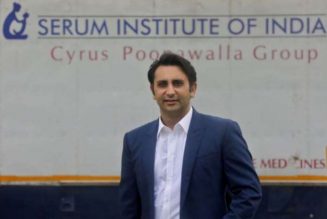Only a handful of days are left for the new year so it’s only right to bring out your diary to make new resolutions and check whether you did yourself good with the year that went by. Whether it is keeping fit with yoga and exercises or vowing to eat cleaner, this is that time of the year when in addition to your physical health, you also take note of financial health and organise your finances.
To truly achieve meaningful goals, it’s important to consider the financial implications of a healthy lifestyle. It’s time to recognise the unwavering link between your well-being and your bank account. Given the rising healthcare costs and changing lifestyles, planning for financial wellness in addition to physical health will go a long way. Asit Rath, CEO & MD of Aviva India spoke to WION about redefining budgeting to include financial wellness. It’s not just an expense but an investment in oneself.
The expert shared with us his insights on the financial opportunities associated with adopting a healthy lifestyle. He also spoke how shifting our focus towards resolutions can positively influence not just our health but also our wealth.
Shifting Mindset: From Expense to Investment
Investing in a healthy and fit body is akin to investing in a secure financial future. A healthy lifestyle reduces healthcare costs by preventing illnesses, potentially lowering insurance premiums. Improved physical health enhances productivity, increasing earning potential and career longevity.
Imagine replacing your daily cigarette habit with a brisk walk or jog. Instead of spending Rs. 60 on six cigarettes, you’re investing in your health for free. Regular physical activity not only improves your physical well-being but also reduces the risk of expensive chronic illnesses, saving you money in the long run. Consider this: a gym membership may seem like an initial expense, but it pales in comparison to potential medical bills resulting from neglecting your health.
Healthier Lifestyle, Lower Healthcare Costs
Maintaining a healthy diet is not only beneficial for your well-being but also for your wallet. By prioritising nutritious, home-cooked meals over frequent dining out or relying on processed foods, you not only invest in your long-term health but also save money. Consider the cost of fast food or processed snacks that may seem economical at the moment but can lead to health issues in the future.
Investing in nutritious food not only contributes to your well-being but also prevents potential medical costs down the line. Planning meals, buying in bulk, and avoiding impulsive purchases can significantly reduce grocery expenses.
Fostering Mental Balance for a Flourishing Life
A thriving mind forms the cornerstone of a flourishing existence, wielding a profound impact on both personal well-being and professional success. Rather than dwelling on the drawbacks, let’s illuminate the positive facets of creating a harmonious mental and life balance. Cultivating equilibrium not only diminishes stress levels but also paves the way for enhanced decision-making and heightened productivity.
Embracing activities like meditation, seamlessly woven into sports or hobbies, emerges as a powerful tool in channelling the mind and alleviating stress. As we weave the tapestry of a well-rounded life, we discover that the pursuit of mental wellness not only averts potential health costs but also lays the groundwork for sustained professional growth.
Paying Attention to Finances
Financial literacy is the cornerstone of securing your financial future. Educate yourself on budgeting, saving, and investing. By taking control of your finances, you can make informed decisions, avoid financial pitfalls, and safeguard yourself from unexpected expenses. Regularly assessing and managing your finances can help you identify areas where you can cut unnecessary expenses and redirect funds towards savings or investments.
Being financially savvy ensures that you have a safety net for unexpected expenses, reducing the risk of financial strain due to unforeseen circumstances.
Early Detection, Long Term Savings
A proactive approach towards regular check-ups and health diagnoses is a smart financial move. It is imperative to understand the importance of preventive health care as prevention is far cheaper than cure. Early detection of potential health issues can significantly reduce the overall treatment costs. Consider the scenario of neglecting regular check-ups and discovering a health concern at a later stage when the treatment costs are considerably higher. Proactively managing your health not only saves money but also ensures a better quality of life.
Investing in your well-being is investing in your financial future. As we usher in 2024, let these five habits be the compass guiding you toward a future where health and wealth thrive hand in hand.
Adopting these habits isn’t just a resolution, it’s an investment in a life where your well-being is the cornerstone of your financial stability.










